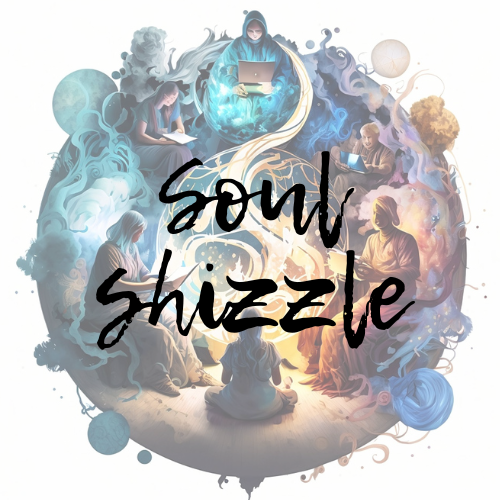Is Spirituality a Coping Mechanism? An In-Depth Exploration
Picture this: You’re stuck in bumper-to-bumper traffic, your phone is buzzing with work emails, and your to-do list seems to be growing by the minute. Sound familiar? In our fast-paced, often chaotic world, it’s no wonder that many of us are constantly on the lookout for ways to cope with the stresses and anxieties that come with modern life. Enter spirituality – a concept that’s been gaining traction as a potential salve for our collective existential wounds. But here’s the million-dollar question: Is spirituality just another coping mechanism, a sort of emotional band-aid, or does it offer something deeper, more profound, and potentially life-changing?
In this article, we’re going to dive headfirst into the fascinating world of spirituality as a coping mechanism. We’ll explore its various dimensions, unpack its benefits, and take a good, hard look at what it means for our mental health and overall well-being. So, grab a cup of tea, find a comfy spot, and let’s embark on this spiritual journey together.
What on Earth is Spirituality, Anyway?
Before we get into the nitty-gritty, let’s take a moment to understand what we mean by spirituality. It’s a term that gets thrown around a lot, but what does it really mean?
Spirituality is like a chameleon – it can take on different forms for different people. At its core, it’s about feeling connected to something bigger than ourselves. For some, that might mean a higher power or a divine being. For others, it could be a sense of oneness with nature or the universe. It’s often associated with religion, but here’s the kicker – you don’t need to be religious to be spiritual.
Think of spirituality as a toolbox for the soul. It can include practices like meditation, where you sit quietly and focus on your breath (and try not to think about your grocery list). Or prayer, where you have a heart-to-heart with a higher power. It might involve spending time in nature, feeling the grass beneath your feet and the sun on your face. Or it could be as simple as taking a moment each day to reflect on what you’re grateful for.
The goal? To find a deeper sense of peace, purpose, and connection in our lives. Sounds pretty good, right?
Is Spirituality a Coping Mechanism: Breaking it Down
Now, let’s get to the meat of the matter. How exactly does spirituality function as a coping mechanism? Let’s break it down into bite-sized pieces.
1. Stress Buster Extraordinaire
We all know stress. It’s that unwelcome guest that shows up uninvited and overstays its welcome. But here’s where spirituality comes in like a superhero. Practices like meditation and prayer can be like hitting the pause button on life’s chaos. They induce a state of relaxation that can make you feel like you’ve just had a mini-vacation – without the hassle of airport security.
Imagine being able to take a deep breath in the middle of a crisis and actually feel your stress levels drop. That’s the kind of superpower spiritual practices can give you. It’s not about making your problems disappear (wouldn’t that be nice?), but about giving you the mental clarity to face them head-on.
2. The Quest for Meaning: More Than Just Existing
Let’s face it – life can sometimes feel like a hamster wheel. Wake up, work, eat, sleep, repeat. But spirituality offers a different perspective. It’s like putting on a pair of glasses that help you see the bigger picture.
When life throws you a curveball (and let’s be honest, it will), having a spiritual framework can be like having a cosmic GPS. It doesn’t necessarily tell you why bad things happen, but it can help you find meaning in the madness. Maybe that setback at work isn’t just a failure, but an opportunity for growth. Perhaps that heartbreak isn’t just pain, but a lesson in love and resilience.
3. You’re Not Alone: The Power of Spiritual Communities
Remember the old saying, “It takes a village”? Well, it turns out that village can be pretty darn helpful when you’re trying to cope with life’s challenges. Many spiritual traditions emphasize the importance of community, and for good reason.
Being part of a spiritual community is like having a built-in support network. It’s a place where you can share your joys, your sorrows, and everything in between. When you’re going through a tough time, knowing you have a group of people who’ve got your back can make all the difference.
These communities often provide both emotional and practical support. Need someone to talk to at 2 AM when you’re questioning the meaning of life? There’s probably someone in your spiritual community who’s been there and is willing to lend an ear. Need help moving to a new apartment? Don’t be surprised if your spiritual buddies show up with moving boxes and pizza.
4. Inner Strength: Becoming Your Own Superhero
Here’s where spirituality really flexes its muscles. It has this incredible ability to foster resilience and inner strength. It’s like having a personal trainer for your soul, helping you build the emotional and mental muscles you need to face life’s challenges.
Believing in a higher power or a greater plan can be like having a cosmic cheerleader. It can give you the courage to face your fears, the strength to persevere when things get tough, and the hope to keep going when all seems lost.
Think about it – how many times have you heard stories of people overcoming incredible odds, crediting their faith or spiritual beliefs as their source of strength? It’s not about sitting back and waiting for a miracle. It’s about finding that spark of divine strength within yourself and using it to light your way through the darkness.
The Psychological Perspective: More Than Just Woo-Woo
Now, I know what some of you might be thinking. “This all sounds great, but where’s the science?” Well, buckle up, because we’re about to get a little nerdy (in the best way possible, of course).
From a psychological standpoint, spirituality falls under the category of positive coping strategies. These are the healthy, constructive ways we deal with stress and adversity. It’s like choosing a green smoothie over a greasy burger – both might make you feel good in the moment, but one is definitely better for your long-term health.
Spirituality encourages practices that psychologists have long recognized as beneficial for mental health:
- Self-reflection: Taking the time to look inward and understand ourselves better.
- Mindfulness: Being present in the moment, rather than dwelling on the past or worrying about the future.
- Focusing on the positive: Cultivating gratitude and optimism, even in challenging times.
These practices aren’t just feel-good mumbo jumbo. They’ve been shown to have real, measurable benefits for our mental health and well-being.
Spirituality vs. Religion: Not Quite the Same Thing
Now, let’s clear up a common misconception. Spirituality and religion are often used interchangeably, but they’re not exactly the same thing. Think of it this way: all dogs are animals, but not all animals are dogs. Similarly, religion often includes spirituality, but spirituality doesn’t necessarily include religion.
Religion typically involves specific beliefs, practices, and rituals associated with a particular faith community. It’s like being on a team with a set playbook. Spirituality, on the other hand, is more like freestyle dancing – it’s personal, fluid, and can look different for everyone.
This distinction is important because it means you don’t need to subscribe to a particular religion to reap the benefits of spirituality as a coping mechanism. You can be spiritual without being religious, religious without being particularly spiritual, or both religious and spiritual. It’s all about finding what works for you.
The Science Behind the Spirit: What Research Tells Us
For all you science enthusiasts out there, you’ll be pleased to know that spirituality isn’t just about faith – there’s actually a growing body of research supporting its benefits.
Studies have shown that individuals who engage in spiritual practices tend to have lower levels of anxiety, depression, and stress. They also report higher levels of life satisfaction, happiness, and overall well-being. It’s like spirituality is the secret ingredient in the recipe for a good life.
But it gets even more interesting when we look at the physical effects:
The Mind-Body Connection
Remember how we said spirituality can make you feel like you’ve had a mini-vacation? Well, your body agrees. Research has shown that spiritual practices like meditation can reduce stress hormones, lower blood pressure, and even boost immune function. It’s like giving your body a spa day from the inside out.
Neuroplasticity: Your Brain on Spirituality
Here’s where things get really exciting. Emerging research in neuroscience suggests that spiritual practices can actually change the structure and function of our brains. It’s a phenomenon known as neuroplasticity.
For example, studies have found that regular meditation can increase gray matter in areas of the brain associated with learning, memory, and emotional regulation. It’s like your brain is getting a workout, becoming stronger and more flexible in the process.
The Other Side of the Coin: Criticisms and Counterarguments
Now, let’s be real for a moment. As amazing as spirituality can be as a coping mechanism, it’s not without its critics. And it’s important to look at both sides of the coin.
Some argue that relying too heavily on spirituality can lead to avoiding real-world problems. It’s the spiritual equivalent of sticking your head in the sand. There’s also concern that extreme forms of spirituality can lead to dogmatism or detachment from reality.
These are valid points, and they highlight the importance of balance. Spirituality should enhance our ability to engage with the world, not provide an escape from it. It’s about finding inner peace so we can more effectively deal with outer chaos, not ignoring the chaos altogether.
Making Spirituality Work for You: Practical Steps
So, you’re intrigued by the idea of spirituality as a coping mechanism, but where do you start? Here are some practical steps to help you dip your toes into the spiritual waters:
- Meditation and Mindfulness: Start small. Even five minutes a day of sitting quietly and focusing on your breath can make a difference. There are plenty of apps and YouTube videos that can guide you if you’re new to meditation.
- Journaling: Get yourself a notebook and start writing. It doesn’t have to be profound – just jot down your thoughts, feelings, and experiences. Over time, you might start to notice patterns or insights.
- Nature Connection: Take a walk in the park, go for a hike, or simply sit under a tree. Pay attention to the sights, sounds, and smells around you. Nature has a way of putting things into perspective.
- Community Engagement: Look for spiritual groups or communities in your area that resonate with you. This could be a traditional religious community, a meditation group, or even an online forum. The key is to find people who support your journey.
- Gratitude Practice: Each day, try to think of three things you’re grateful for. They don’t have to be big things – it could be as simple as a good cup of coffee or a smile from a stranger.
Remember, there’s no one-size-fits-all approach to spirituality. It’s about finding what works for you and makes you feel more connected, grounded, and at peace.
Real People, Real Stories: Spirituality in Action
Sometimes, the best way to understand something is to hear from people who’ve lived it. Here are a few stories from individuals who’ve successfully integrated spirituality into their coping mechanisms:
Sarah’s Meditation Journey
Sarah, a 35-year-old marketing executive, was no stranger to stress. “I was constantly on edge,” she says. “My mind was always racing, thinking about deadlines and meetings.” On a whim, she decided to try meditation. “I started with just five minutes a day,” she recalls. “At first, it was torture. I couldn’t sit still, and my mind wouldn’t shut up.” But Sarah persisted, and over time, she noticed a change. “It was like I had discovered a secret superpower,” she laughs. “I could feel my stress melting away during my meditation sessions, and I started handling work pressures much better.” Now, Sarah swears by her daily meditation practice. “It’s my mental reset button,” she says. “I don’t know how I ever managed without it.”
John’s Nature Connection
For John, a 50-year-old high school teacher, spirituality came in the form of nature walks. “I was going through a rough divorce,” he shares. “I felt lost and angry all the time.” One day, on a whim, he decided to take a hike in a nearby forest. “Something shifted in me that day,” he remembers. “Being surrounded by trees, hearing the birds, feeling the earth beneath my feet – it was like coming home.” John made nature walks a regular part of his routine. “It’s where I do my best thinking,” he says. “And somehow, my problems always seem smaller when I’m out there.” John’s connection with nature helped him navigate through his divorce and rediscover himself. “Nature became my therapist, my friend, and my spiritual guide,” he smiles.
Maria’s Spiritual Community
Maria, a 40-year-old nurse, found her spiritual home in an unexpected place – a local meditation center. “I was raised Catholic but had drifted away from the church,” she explains. “But I still felt a need for something spiritual in my life.” When a friend invited her to a meditation session, Maria was skeptical but decided to give it a try. “I was amazed by how welcoming everyone was,” she recalls. “There was no judgment, no pressure – just a group of people supporting each other on their spiritual journeys.” The meditation center became Maria’s anchor during a particularly stressful period at work. “Knowing I had this community to turn to made all the difference,” she says. “We meditate together, share our experiences, and sometimes just hang out and have fun. It’s like having a spiritual family.”
These stories remind us that spirituality can take many forms, and its benefits can be profound and far-reaching. Whether it’s through meditation, nature connection, or community engagement, spirituality has the power to transform how we cope with life’s challenges.
The Bigger Picture: Spirituality and Society
As we wrap up our exploration, it’s worth considering the broader implications of spirituality as a coping mechanism. In a world that often feels divided and chaotic, the integration of spiritual practices could have far-reaching effects.
Imagine a society where more people have access to effective stress-management tools, where individuals are better equipped to find meaning and purpose in their lives, and where communities are built on values of compassion and interconnectedness. This isn’t just pie-in-the-sky thinking – it’s a real possibility if we embrace spirituality as a positive force in our lives and our world.
Of course, this doesn’t mean that spirituality is a magic solution to all of society’s problems. But it does offer a powerful tool for personal and collective growth, resilience, and well-being.
More Than Just Coping
So, is spirituality just a coping mechanism? Well, yes and no. Yes, it can be an incredibly effective way to cope with life’s challenges. But it’s also so much more than that.
Spirituality offers a pathway to deeper understanding of ourselves and our place in the world. It provides tools for managing stress, finding meaning, and building resilience. It connects us with others and with something greater than ourselves. In essence, spirituality doesn’t just help us cope with life – it helps us thrive.
As we navigate the complexities of modern life, perhaps it’s time to give spirituality a chance. Whether you’re a seasoned spiritual practitioner or a curious skeptic, there’s room for everyone on this journey. After all, in a world that often feels overwhelming, couldn’t we all use a little more peace, purpose, and connection?
So, why not take that first step? Meditate for five minutes, take a mindful walk in nature, or simply pause to appreciate the beauty around you. You might just find that in coping, you discover something far more profound – a richer, more meaningful way of experiencing life itself.
Remember, the spiritual journey is just that – a journey. It’s not about reaching a destination, but about growing, learning, and evolving along the way. And who knows? You might just find that in learning to cope, you unlock the secret to truly living.
We may earn a commission for purchases made using our links. Please see our disclosure to learn more.




